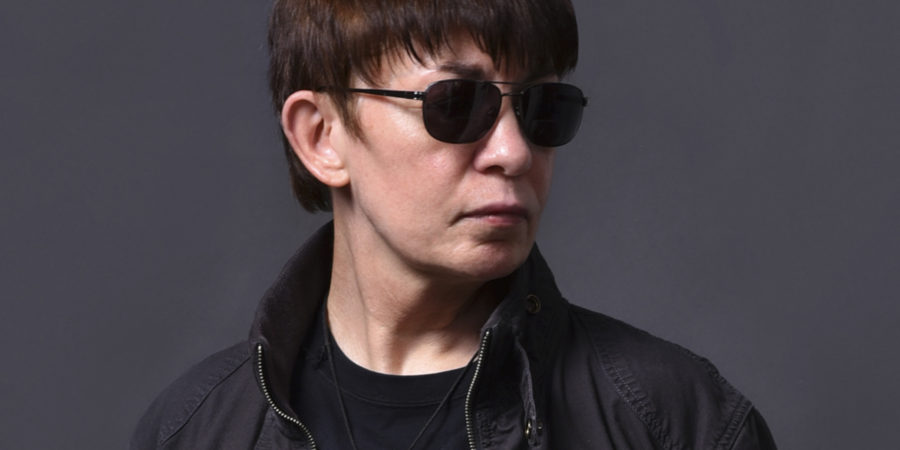After spending many years serving as an FBI agent and as an attorney for the New York Police Department, Susan Yasinski — who now goes by Susan SurfTone — became adept at succeeding as one of the only women in the boy’s club. She also quickly learned how to keep her sexuality a secret, because during her tenure at the FBI during the 1980s, you could be fired for being gay. The FBI also wasn’t wild about the idea of her playing music in dive bars in her free time.
When SurfTone left those roles to play music in bands full-time, she was also entering a world dominated by men. But in this arena, she was able to truly be her authentic self — an out, lesbian woman who can play guitar like the best of the guys. While not all other guitar players or fans are receptive to a woman who can rock, she’s found great success with her prolific musical career, especially in Europe.
In the past, all of her music was either instrumental or sung by other vocalists, but SurfTone recently began taking vocal lessons and started singing in some of her songs. The 60-something musician currently spends the majority of her time in Los Angeles. She also spends some of her free time writing as a form of activism to galvanize women and the LGBTQ community stand up and speak out. This is Susan’s story of being a gay woman in a man’s world and finding her voice.
Profiles in Pride: How old were you when you realized you were gay?
Susan SurfTone: I knew I was gay when I was about 3 years old. It was very, very early in my life. I was never attracted to men. I did date some boys in high school and a couple my first semester in college. I went to Smith College, and of course at Smith College, it was very easy to pursue the direction that I wanted to. It’s just an inherent part of me. It’s like I have brown eyes, I’m 5’6”, and I’m lesbian. It’s how I look at it. It’s just one more aspect of who I am.
PIP: When you joined the FBI, were you in the closet? Did you have to hide your sexuality?
SS: You had to be in the closet. As far as work went, yes, of course. You could be fired, because at that time, the fact that you were a member of the LGBTQ community — there was no Q back then of course, it was in the early ‘80s — it would automatically disqualify you for a security clearance, so you couldn’t hold a job.
That changed with an executive order that President Clinton signed in the ‘90s. Before that, we couldn’t be known at work. I did have a girlfriend that I lived with; I was very cautious with my personal life. She knew what the restrictions were. You had to live with it. There were other gay agents at work; I was not alone. We would find each other and know who we were.
I don’t know if this is true or not; it’s my feeling and observation looking back at it later in life: there were probably several straight agents who knew and didn’t have a problem with it. And some probably would have freaked out if they knew. It’s like life, it’s wherever you go. People are people no matter where they are. For some people and for some agents, I don’t think they cared. For some agents, they would have dragged you into the special agent in charge and you would have been fired.
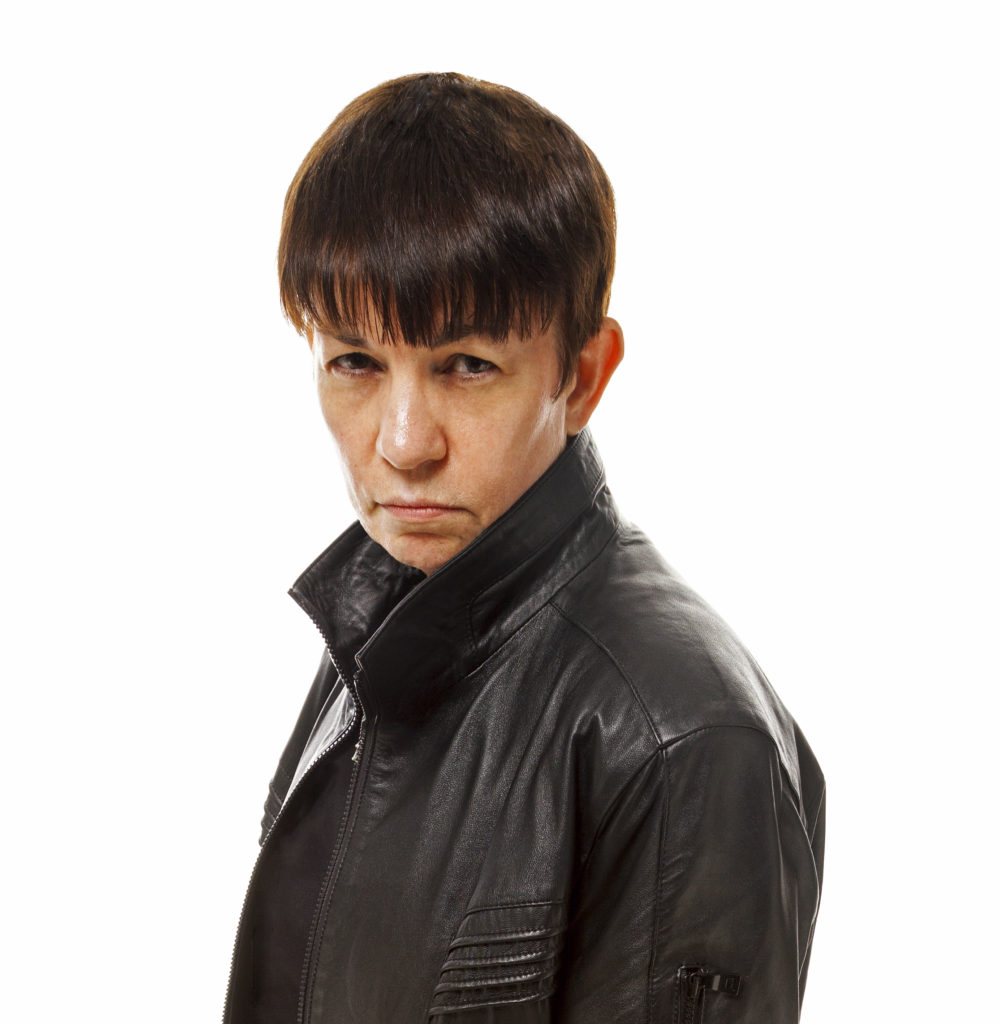
PIP: What was it like having to hide such a big part of you?
SS: It was not fun. It was really stressful, because you really had to be mindful of it all the time. Of course if you went into a gay club, you were nervous. If you did anything out in public that would label you a lesbian, of course, you were nervous. It was very stressful.
PIP: When you were an attorney for the NYPD, did you have to be in the closet at that job too?
SS: No, that was later, the late ‘80s, and I was not in the closet at all in that job in the NYPD. I was an attorney, I wasn’t a police officer. It was known, and again, I treat it as if it was just one facet of who I am. There’s nothing sensational about it, it’s no big deal. And I found that most people — I don’t know what was said behind my back, of course — but I can’t think of one who had a problem, and most were very accepting.
PIP: What was it like working in fields that were so male-dominated as a woman?
SS: It was different; you just had to prove yourself, and you had to make sure you knew what you were doing and that you were qualified, which I was. In fact, I had better qualifications than a lot of the men in my class at Quantico when I went through.
You just had to make sure that you did a good job. You knew things were going to be made tough for you. And you just accepted it and you took up the challenge. It was kind of fun never letting them get to you. It drives them nuts!
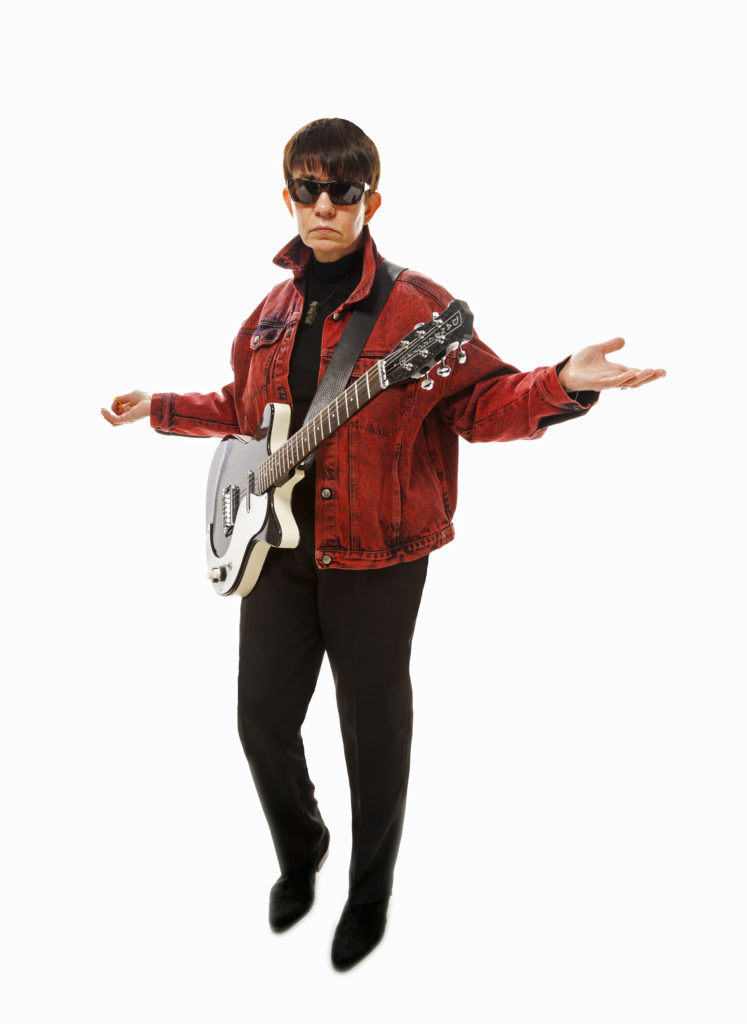
PIP: After you left those roles, you pursued music. Did that eventually become a full-time job for you?
SS: Yes, it did. After I left the FBI, I started some bands in New York City that had vocalists. Susan and the SurfTones came along in 1995 in Rochester. In the ‘80s, I went through sort of new wave, retro, 60’s garage things, I’d call them, with female vocalists. Men were in the band too. I like to play in mixed bands. SurfTones was all girls briefly in Portland for about four months and I didn’t like it at all, but the SurfTones came along after my move to Rochester, which happened in 1990.
PIP: What has that career journey been like? Where has it taken you?
SS: It’s taken me lots of places; it got me to Europe four times because I was signed in 1995 to signed for a small label in Hamburg, Germany, called Gee-Dee Music, and they brought us to Europe two times after that. I got to play in Hamburg, and I’m a big Beatles fan, so that was a big deal since that’s where the Beatles got to play before they got famous. It was a lot of fun.
PIP: What has your music career been like since then?
SS: I started playing surf music, and I played surf music until the last couple of years. It’s very male-dominated. It’s the same issues that I had at the bureau and sometimes at the NYPD and male-dominated fields, so I was well trained when I went into surf music.
You’ve just got to be good at what you do, and you can’t listen to them. You have to block them out. The trick is you have to learn this: some men are going to be your friend. There are some that are going to be nice and helpful, and you should listen to them. Then there are some that are complete jackasses. So you have to learn where the constructive criticism and the true friend is coming from, and where the jackass is. The jackass you block out. The true friend, you’ve gotta learn to take the constructive criticism.
I did, and it was helpful. I have some very good friends in surf music who are men. But I do find that the men who can accept a very confident woman in their field are the men who have their own confidence in what they do — they’re not threatened. Like in the surf world, the better players tend to accept me. It’s the C-level and D-level players that have problems.
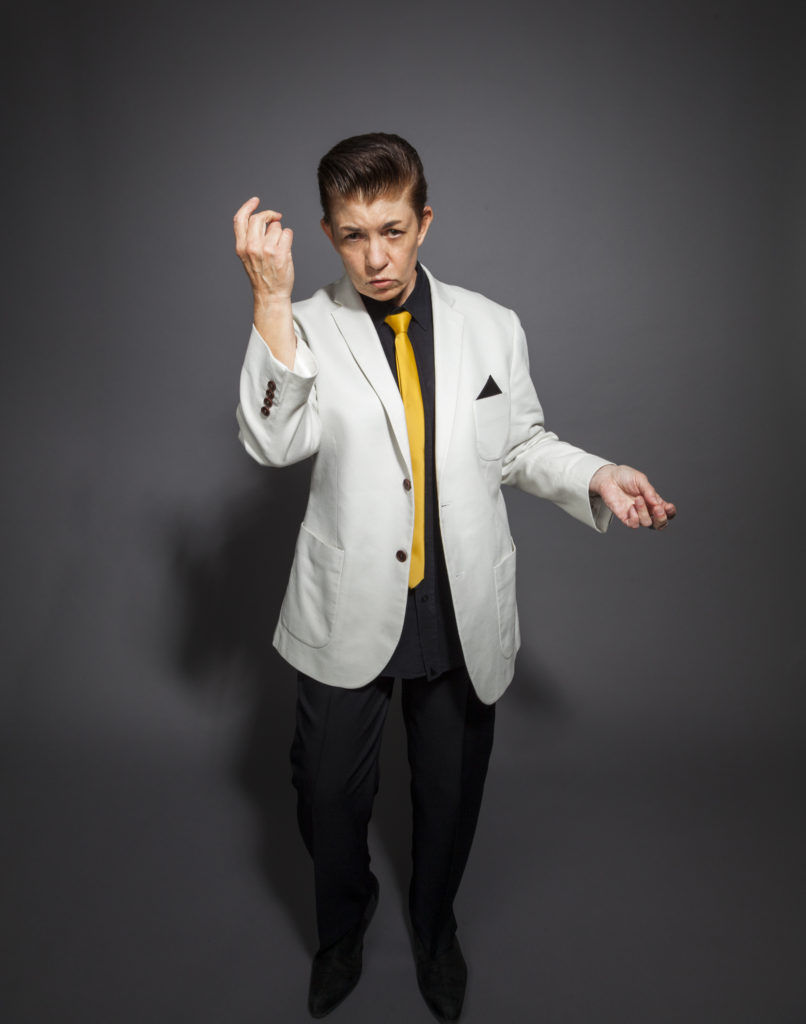
PIP: Do you still play a lot of surf music, or have you moved on to other genres?
SS: I do play surf music. But in the last couple years, I’ve started singing, so I’ve been doing more of a retro rock. A mixture of surf music on my recordings, and there will be some where I’m singing, and I’ve been playing a little more blues lately, too. So it’s a mixed bag of all of that.
My latest record is called “Second to One;” Elvis did a record called called “Second to None.” It’s an Elvis tribute. I do five vocals and two instrumentals, and they’re all Elvis. I do a lot of compilations with a label called Bongo Boy Records out of New Jersey. I just wrote a new original that will be on their “Love Is Volume 2” compilation. I do original music and I do the cover music, I do both, because I think they show different musical skills. People do like to hear music they know, and they like to hear new stuff too, so you do both.
PIP: What drew you to surf music to begin with?
SS: Well, when I was a kid, I started playing when I was 9 right after the Beatles came over. I had kind of a low singing voice for a girl and I wasn’t encouraged to sing much, so I wanted to take guitar lessons. I loved Elvis Presley. My mother took me to see Jailhouse Rock when I was 3 and and it changed my life, or gave me the direction of my life, that’s for sure. I was a good guitar player; at the first lesson, I was good. I was fortunate that I had a good teacher that recognized that a little girl, back in 1964, could play guitar. He started teaching me songs that had a lot of melody in them.
He taught me “Walk, Don’t Run,” by The Ventures, so that opened that whole door up. I like the clean sound of a guitar with reverb; I don’t like a lot of distortion and effects. I never learned to play that way. I like the melodic nature of surf music. So when it came time, I was tired of working with the vocalists because I wasn’t singing at that point in my career. And a vocalist would come and go, and then I’d be starting all over again.
So right around 1995, I decided to do a surf band. And it was great timing because Pulp Fiction was out, and Dick Dale’s “Miserlou” was the big song from that, so surf music was everywhere. It was very popular in Europe, so that’s how I got there; the European labels signed me. I was on the German label, and a very small Belgian label, and then an Italian label.
I found the Europeans were more able to accept a woman playing lead surf guitar in a band where there were no vocals, and they seem to accept it better than Americans. I hate to say it, but it’s true. So I had more success over there. I did the four tours, but I was still getting known over here too, so I can’t really complain. It was gradual; I hit a point where I wanted to try to sing. So I took an old song I’d written back in the ‘80s called “A Little Bit Lied To” that I really liked. It’s a Buddy Holly type of thing. And I could sing it, and I always wanted to sing it, so I did. I did my first video with that song. People didn’t throw things at me or tell me to sit down and shut up, so I figured I should keep going.
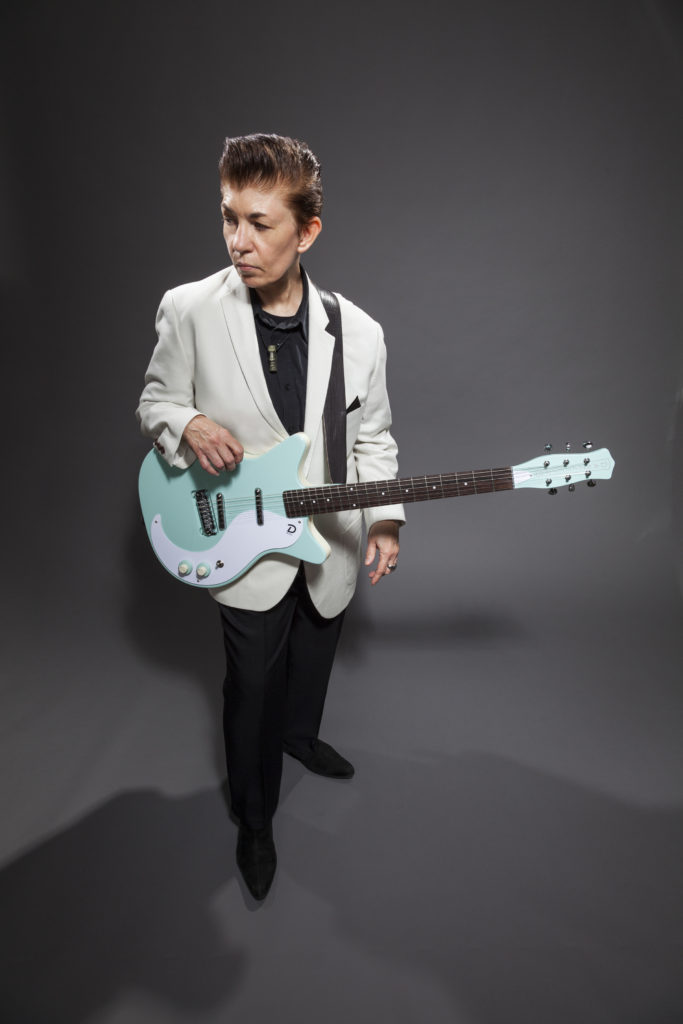
I wanted to do the Elvis tribute record and I got to the point where I realized I needed lessons, so I started taking lessons with Darlene Koldenhoven here in LA. You know her from Sister Act; she’s the nun with the tambourine. She had done all the vocal coaching for both Sister Act movies, and she’s a studio singer who’s sung with everybody; you name them, she’s sung with them. She also does her own music in the new age category. She’s great, so we struck up a friendship and we started to do the lessons, and I got better right away. I went from half an octave to two octaves in three weeks, so a whole door just opened up. It was great.
What had happened was I was having trouble as a singer hearing the notes. As a guitar player I didn’t have that trouble, but as a singer, I did. So we fixed that problem and off we went. And in fact, she’s doing the backup vocals on my new original song, called “If I Knock,” on the compilation album with Bongo Boys. So I enjoy singing now; I’m getting more confident. I wouldn’t say the confidence is completely there, but it’s getting there. The guitar playing is no problem; I was confident at that when I was 11.
It’s a funny story; I was 11, playing my friend’s brother’s guitar and he was in high school. I played a Ventures song called “Diamond Head.” He screamed, “She’s playing Diamond head!” and he grabbed the guitar out of my hands, so at that age I realized I had an effect on guys playing his guitar! It was kind of funny.
So the singing, it takes it to another level. People have always asked me, and you get tired of answering it when you have a band that plays all instrumental music — people ask, “Why don’t you sing? Where’s your singer?” We’d say, “We killed him!” And that would shut them up.
So it was a challenge that I wanted to see if I could do it. Because when I hit points in my life where I have to make decisions, like when I left the FBI to basically play music, because they did not like the idea of me playing in a band in CBGB. And that’s what I wanted to do. It’s like, are you going to regret this when it’s all over? Are you going to look back and regret not trying it? That’s how I felt about the singing. I felt like, you’ve gotta try it. So I did.
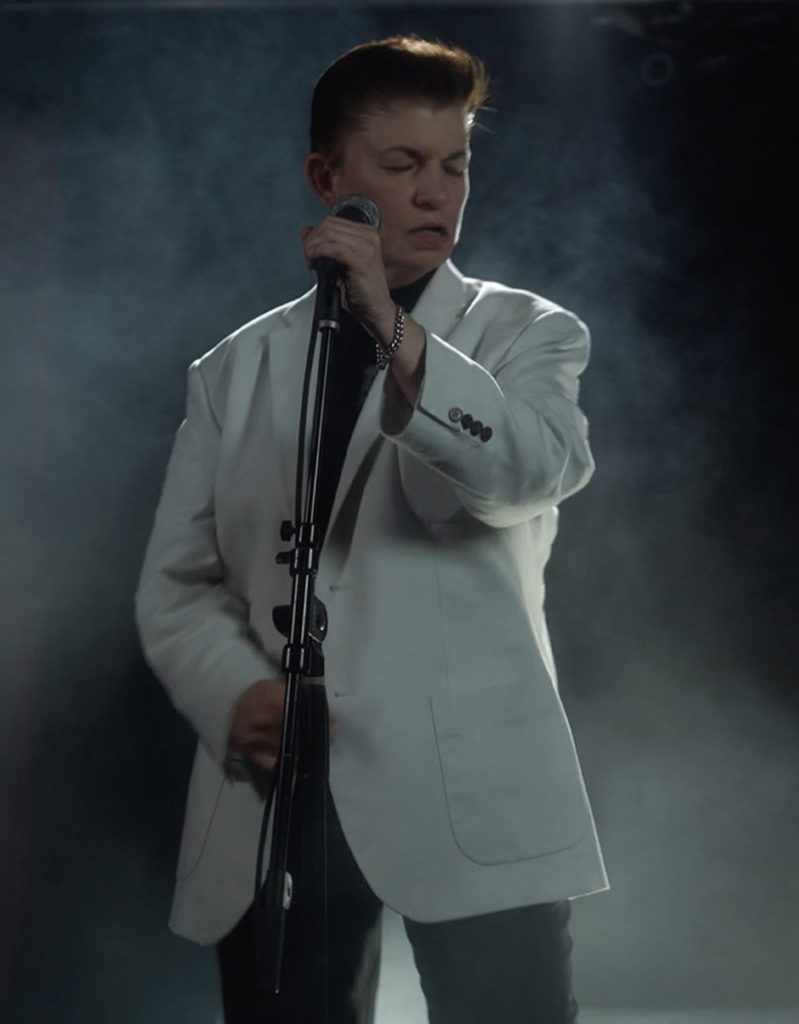
PIP: That’s great. So I know you are passionate about women’s rights and LGBTQ rights. Can you talk about your stances and what types of activism you’ve done?
SS: When Hillary was running in summer of 2016, she’d just gotten the nomination, and one of the editors at The Advocate asked me to write a piece comparing myself to Hillary Clinton. Because believe it or not, there are some comparisons there. We both grew up in a Republican household turned Democrat, went to Ivy League schools, were lawyers. So I wrote the piece and it did well; people liked it. I wrote more pieces for them, and I kept writing. I’ve written about mostly Trump, Russia, some stuff about the FBI — mostly positive, I hope, about the FBI, because I do feel positive about them. I think they do a great job, and count me as an FBI supporter.
I’ve been a little critical of Comey, because I just don’t understand why he did what he did on October 28, because I do believe he cost her the election. I don’t think he intended to, but I think he did. And I think there’s an open question there. Trump has just taken us in a really, really, really bad place in a lot of ways.
My activism is through the columns. I’ve written my first ones for The Seattle Lesbian; that might be a monthly thing. That’s where I do the activism. I am a lawyer and I have the expertise from the bureau. And I try to look at where we are, predict down the road a little bit where we’re going to go, and make it relevant to the LGBTQ community.
I feel that we’re in serious trouble. Because if Mitch McConnell and the Republicans in Congress are hell-bent on changing our judiciary into this crazy retro thing that wants to drag us back to 1958, and they’re putting judges in the lower bench in the federal courts and are waiting for that last Supreme Court seat, once they get it, they will do irreparable harm to us for decades to come.
With the LGBTQ community, I don’t think our voice is heard loud enough, because I think it’s perceived in our world of identity politics that we won our issue with same-sex marriage. We no longer are being included in the lists of groups that are truly in jeopardy under Trump. And we are.
Violence has gone up in the last two years against the LGBTQ community. Trans homicide is unbelievable; that rate just keeps going up and up and up. Things need to be done. Sessions, under the guise of this religious liberty executive order — there are regulations being passed that are working against us, taking rights away from us. And we don’t even hear about, because there’s so much going on. Like right now I have the TV on mute, and Rex Tillerson just got fired.
Every day it’s a new thing, and we’re just getting lost in the noise. So I think that we need to make sure we get heard. It’s imperative that we vote him to get out. It’s not a done deal.
I think a lot of people didn’t go to the polls for Hillary because they thought it was a given she would win. And in my mind, she did. She got 3 million more votes than he did, in the face of all that Russian interference, so that’s a pretty good job. I hate to hear her criticized as much as she is. Because she stood there and took it and she won.
It’s this crazy electoral system that was controversial when the Founding Fathers put it in there; it was [74] votes in a few states, and we have this mess now. It think we’re at the most dangerous time we’ve ever been at in our republic and the way that we live. The LGBTQ community has to stand up and remember that not only are there identity politics here, but we are also Americans. I think that we need to remember that our same-sex marriage victory hangs by a thread; it was a 4-5 decision. So we need to get out there and make our voices heard.
PIP: Do you have any advice for younger women?
SS: The only thing I can say to the women out there is just don’t ever take no for an answer. If you want to do something, learn how to do it and do it well. And just go do it.
Learn more about Susan on her website, SusanSurfTone.com.
Photos by Robbie McClaran

